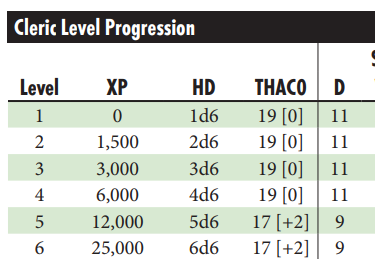In a now-landmark article, Luke Gearing wrote Against Incentive, arguing that “incentivising behaviour is bad for your game”. By adding (mechanical) incentives, we create optimal choices, and optimal choices are non-choices, because “most players, most of the time, will take the most optimal option.”. Though I agree with Gearing’s conclusion – optimal choices are non-choices – I don’t think it’s correct to say that an incentive categorically creates an optimal choice.
Instead, when we have to make a choice, an incentive might tip the balance one way or another. When done poorly, it certainly can create an optimal choice – any half-competent player would choose one over the other. Obviously, if “doing the good thing” and “doing the bad thing” have nearly identical consequences in the narrative, but the former awards an additional 500XP, most players will elect to do the former. But it certainly doesn’t need to be that clear-cut. Let’s say “doing the bad thing” will put us in favour with the local lord. That’s certainly a more interesting choice. Maybe I find a favour to be far more valuable than a measly 500XP. Or maybe I don’t care at all about local politics, and I’ll prefer the 500XP. Is that not an interesting choice? Does that not say something about what I – the player – value?
In fact, the idea that incentivizing behaviour is bad further falls apart when you recognize that everything is an incentive. Coin – regardless of whether it grants XP – is an incentive. Magical items are incentives. Land, power, connections, hirelings – all incentives. Dungeon A might earn us enough XP for our next level so we can go confront the dragon, but is that really more valuable than Dungeon B, which contains the legendary sword of dragonslaying? Furthermore, the actual amount of XP we’ll earn is often obscured, especially when using gold-for-xp. We won’t know how much we’ll get until we actually collect the treasure. How much can that truly inform our decisions?
Nevertheless, there is of course an obvious difference between XP and all of the other incentives I mentioned above. Of all of those, XP is the only one that exists fully outside of the narrative. Characters do not collect XP. It is rewarded by the GM to players. It is the only extradiegetic incentive.
Or is it? See, if we consider various incentives as altering the push-and-pull between two desirable (or undesirable) choices, there is a large collection of incentives that we have not yet considered. Players, inherently, play their elfgames for a reason. They play elfgames for different reasons. And these motivations too shift the balance one way or another. I have a player who loves exploring dungeon environments, just for the sake of it. I don’t need to add any incentives to make them want to visit every room in my dungeon. And similarly, I would need a very large (dis)incentive to stop them from doing so. And that desire to explore locations – that incentive – also fully exists outside of the narrative. Perhaps the most powerful incentive of all – the reason we play elfgames – is fully extradiegetic.
In fact, for my players, XP is rarely a strong incentive. It rarely informs their actions. Far more compelling are the diegetic incentives and their inherent motivations in deciding what actions to take. But maybe your players are different. Maybe your players really are only motivated by Number-Go-Up. And if so, so what?
Number-Go-Up is a bit of a dirty word. It is seen as an impure motivation, a remnant of video-game thinking. But why? Why is Number-Go-Up inherently flawed? In what way does a player pursuing or enjoying Number-Go-Up clash with the rest of the game? If a player is strongly motivated by Number-Go-Up, why is that a bad thing? How is that different from a player wanting to explore dungeons, or wanting to learn about the world? Why do we consider those valid motivations for wanting to play elfgames, yet Number-Go-Up is somehow a bad thing?
For Number-Go-Up to be a poor or undesirable motivation, it has to somehow conflict with the rest of the game. In other words, does Number-Go-Up-style advancement inherently detract from advancing in other (i.e. diegetic) ways? Does it detract from players setting their own goals? Gearing calls this the “tyranny of Number-Go-Up”. “By removing Advancement, we ask players – why are you playing – what do you want to do[?]” But are these two really so directly in conflict?
I’m certainly not convinced. I see no reason why extradiegetic and diegetic forms of advancement must be mutually exclusive. We are perfectly capable of asking of our players to set goals inside the narrative beyond pursuing Number-Go-Up. In fact, in my experience many players will do so without being prompted. It certainly is a good idea to ask our players why they are playing – and what they want to achieve. But that need not be exclusive with XP-as-advancement. Because Number-Go-Up is a perfectly fine way to like your elfgames.



Hot take: OSR is a GM’s scene, and so diegetic rewards, something the GM has full control over with no way for a player to compare to an outside element that is unbiased or at least has the ‘appearance’ of being one, are preferred.